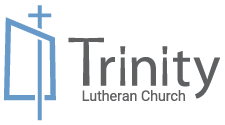The examined life, Hiroshima 75 years later, a late ambassador’s deep bow and our call to be people of amazing grace
Reconciling God, we confess that we do not trust your abundance,
and we deny your presence in our lives.
We place our hope in ourselves and rely on our own efforts.
We fail to believe that you provide enough for all.
We abuse your good creation for our own benefit.
We fear difference and do not welcome others as you have welcomed us.
We sin in thought, word, and deed.
from the Confession and Forgiveness for the Sundays after Pentecost
Beloved community,
First, join me for a moment with a couple of ancient Greek philosophers. In his writing “The Apology,” Plato provided an account of the speech Socrates made at the trial in which he was charged with not recognizing the gods that were recognized by the state, inventing new gods, and corrupting the youth of Athens. At his trial Socrates tells the “men of Athens” that he wants to be judged according to his account of himself and not by any other standard — such as appealing to his old age or the fact that he had children. Socrates famously said, “The unexamined life is not worth living.” Upon that examination and recognizing his own guilt, Socrates accepted their judgment and was subsequently sentenced to death.
Socrates assertion implied that the ‘unexamined life’ was one deprived of the meaning and purpose of human existence and that we should use our highly developed faculty of thought to rise above the world of ‘mere beasts.’ Our willingness to live the ‘examined life’ is a mark of our humanity.
The opening words of our order for Confession and Forgiveness above, as we offer those words at the beginning of worship on the Sundays after Pentecost this year, function as a discipline embracing a call to the ‘examined life’ in the context of our faith community’s liturgy. After a moment of silent reflection, we begin to confess the means of our failing. “We fall short,” we say in summary. In thought, word and deed, we fail to live as we have been called to live. Then, after that word of confession, we turn to our God of mercy, forgiveness, grace and love:
By your grace, forgive us;
through your love, renew us;
and in your Spirit, lead us;
so that we may live and serve you in newness of life. Amen.
 Tomorrow marks 75 years since the atomic bomb was dropped on Hiroshima, Japan on August 6, 1945. The Hiroshima death toll eventually reached 140,000, fewer than the current coronavirus death count in the United States, but more terrifying in detail.
Tomorrow marks 75 years since the atomic bomb was dropped on Hiroshima, Japan on August 6, 1945. The Hiroshima death toll eventually reached 140,000, fewer than the current coronavirus death count in the United States, but more terrifying in detail.
Now with so much already on our divided minds – the pandemic, the financial crisis for many, racism, policing, elections, business and school openings (or not) and more – it may seem too much to think back on what took place 75 years ago at the end of World War II in Japan. But an ‘examined life’ calls upon us to engage in reflection, learning and even grace in such remembrance, and to mark this somber anniversary with a measure of prayerful humility.
I would need more than this day’s congregational communication to even begin to flesh out the moral reckoning that accompanies the atom bomb and its use in Hiroshima and Nagasaki. However, I read an article recently by Dr. William George, author and Emeritus Professor of Theology at Dominican University. Entitled “Moral Reckoning Under a Mushroom Cloud,” 1 Dr. George shared an image of the ‘examined life’ when marking the ominous anniversary of the bombing of Hiroshima:
“ . . . as August 6 approaches, with all its messages about war and peace and human relations gone horribly wrong, I suggest we look for guidance to a teenaged marine (sent packing for lying about his age), then sailor and soldier, a high school dropout who became a college professor and later the nation’s longest-serving majority leader in the U.S. Senate. Early in Mike Mansfield’s term as ambassador to Japan, a U.S. Navy nuclear submarine surfaced in violation of international law and ended up sinking a Japanese fishing boat that resulted in loss of life. With cameras rolling at his insistence, Mansfield personally delivered to the emperor a note of apology, with a deep below-the-waist bow. I cannot help but think that this humble and principled man, who once taught Asian history to college students in Montana, and later opposed the Vietnam war, was apologizing, too, for taking lives that mattered in Hiroshima and Nagasaki.
“Even if unintended, I think Mansfield was offering America and the world a free lesson in the examined life. A leader with strong religious convictions who did not trumpet his religion, perhaps he was also witnessing to that about which America’s first black president and those attending George Floyd’s funeral sang: the “Amazing Grace” that, little by little, can change human hearts and behavior, even of the slaver-“wretch” who wrote the hymn . . . [You] may discern that very grace at work all around us, even today. But Mansfield’s brief-but-deep act of contrition, on behalf of a nuclear power like no other, may also be a stern warning that if some amazing grace is to save us, or even buy us time, that same grace will not in any sense be cheap.”
We Americans tend to not be very good at confession, contrition, or even grace. The public square in our day seems to ring with an uncompromising competition to determine who has the loudest voice, the most persistent argument, the “right” answer. The deep, humble bow of the once Senate Majority Leader to a foreign emperor, personally delivering a nation’s apology, would be hard to come by in our time. But it does stand as a testimony to the kind of ‘amazing grace’ that the hymn invokes.
Through many dangers, toils, and snares
I have already come;
’tis grace has brought me safe thus far,
and grace will lead me home.
As we pause in reflection, confess our sins and receive the gracious forgiveness of our loving and merciful God, may we have the riches of those attributes at work in our day-to-day lives. Such a path, a contemporary ‘examined life,’ could bring the noise of the public square to a civil and forgiving dialogue from which we all could most certainly benefit. After all, in the spirit of the pandemic mantra, we are all in this together.
Blessings to you, O people of Trinity. May you be safe, may you be well, and may you be held in love.
It remains a privilege to serve as one of your pastors.
Grace and peace,
Pastor Robert Linstrom


